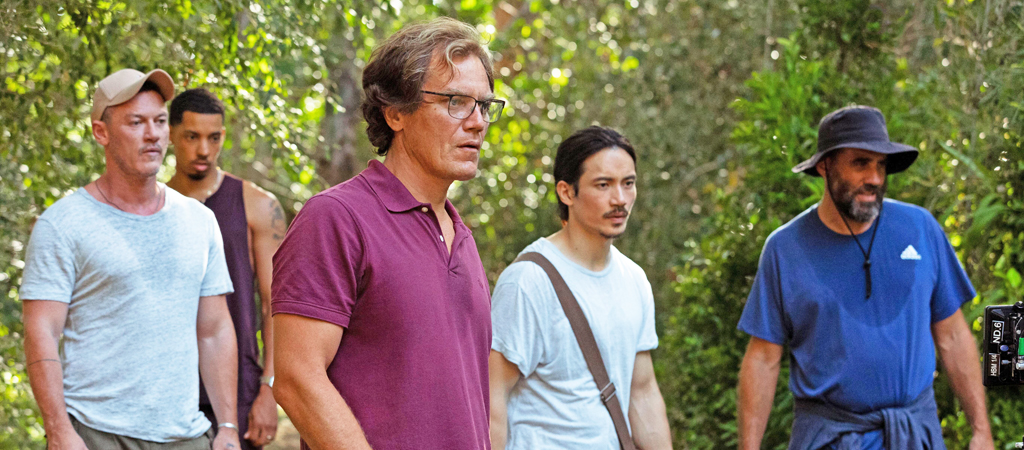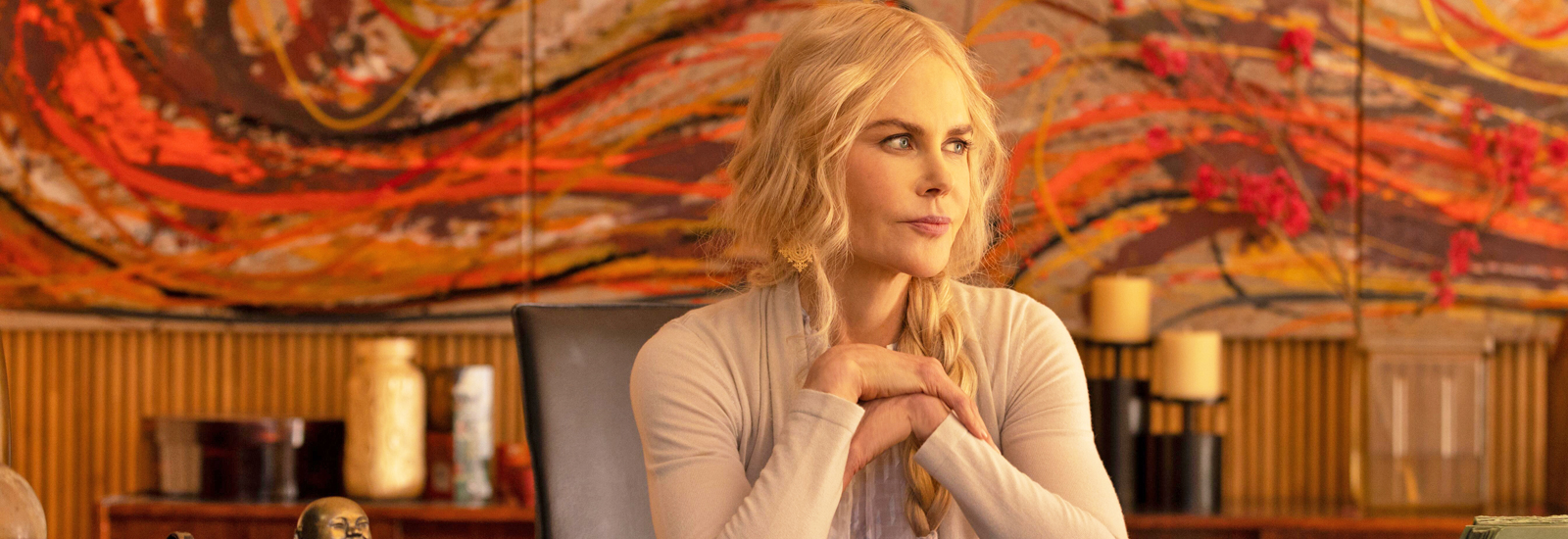Nicole Kidman and David E. Kelley can’t quit each other. Nor can the pair step away from the small screen, and we’re all situated to reap the benefits. Most recently seen in The Undoing (with the naughtiest Hugh Grant incarnation of all) and previously in Big Little Lies (as part of an ensemble of lady powerhouses), Kidman is finally thoroughly enjoying herself in Hulu’s Nine Perfect Strangers. As with Lies, this project is based upon a Liane Moriarty novel, and so, expect to see an ensemble cast of stupendous talent gathered to portray a set of (mostly) privileged characters. More importantly for recency bias’ sake, this group of players also bears similarities to an unrelated HBO series that recently took a first-season bow. That would be The White Lotus, which just ended a season by dropping a deuce and wrapping a satiric take on the ultra-wealthy.
The two shows aren’t twins, that’s for sure. There are many differences to be had (The White Lotus weaves in social commentary like second nature, and Nine Perfect Strangers leans into soap operatics), but they do compliment each other. Instead of following a group of tourists at a Hawaiian resort where a master of ceremonies caters to their every needs while a murder mystery lurks in the background, Nine Perfect Strangers follows a group to a health-and-wellness resort (that’s actually called “Tranquilum”) where the stakes aren’t outwardly huge in a narrative sense, although something feels ominous. Kidman portrays a mysterious Russian guru, Masha, whose methods of healing her patients during retreats qualify as, well, unorthodox.

The strangers of the show’s title all seem to brandish an edge, too, even though the show itself isn’t so biting. From Bobby Cannavale as a former football player with serious personal demons and a pill addiction to Michael Shannon as a grief-afflicted, yet impossibly quirky father and Melissa McCarthy as a famous romance novelist with every facet of her life collapsing at once. Luke Evans and Regina Hall get to go to Rage Town with their characters, and there are hallucinations and freak-outs, both humorous and otherwise, aplenty, and let’s just say that these fine people, all of them, find themselves with afflictions that will seem, at once (given their often-surreal treatment) novel and familiar to the audience. There’s a lot of baggage here, and all of it’s engrossing, whether it’s mere entertainment or something that prompts more viewer empathy.
Mostly, however, this is Kidman’s show, and that’s the package that arrives. The show makes sparing use of her — to make her character as intriguing and mysterious as possible — while enlisting Manny Jacinto and Tiffany Boon among Masha’s staff that does a lot of the emotional dirty work. The show embeds many individual threads, although the parts tend to stand on their own, rather than as a cohesive whole. And even though the show’s atmosphere feels cult-like, there’s not a massive amount of heavy-handed commentary. Instead, the limited series deservedly bats around the wellness industry. It’s very easy to read into things a little more with speculation that is admittedly unfounded: I’m talking about that elephant called Scientology, which Kidman famously sprinted away from following her divorce from a certain Mission: Impossible star. It’s inappropriate to deeply read into how she’s portraying a cult-ish leader, given that Kidman has refrained from commentary on the subject. However, if you’ve seen The Master, there are certainly similarities to the leader that Philip Seymour Hoffman portrayed (who was based upon L. Ron Hubbard) and how Masha behaves, although obviously, the source material and script are responsible for how she’s rendered.
Yep, Kidman is having a ball as the headliner with a character that’s at once flashy and hiding trauma of her own. Masha’s methods are seductive, even as her followers (who appear to have been handpicked to attend this retreat) endure practices that no one (who hasn’t at least been mildly brainwashed) wouldn’t stomach without protest. The criticism of snake-oil salesmen gets aired into oblivion, although the show never feels too judgy. Rather, Nine Perfect Strangers empathizes with its characters, even the Instagram influencer portrayed by Samara Weaving. That character would have been far too easy to skewer without mercy, but this show finds the humanity in recognizing that everyone is dealing with sh*t in life.
Granted, some of this sh*t is very first-world in nature, and that’s alright. A lot of what I took from this limited series, aside from the superior performances and decent script, is that there are redeemable qualities in all of these characters, and you never really know what someone else is going through. That’s important, especially at this moment, to absorb. Even the luckiest among us have been going through a lot during the pandemic, and even the guru in this story is dealing with her own sh*t, as unrelatable as it might seem from the outside. Even if there’s an eerie feeling that permeates through this Nine Perfect Strangers, and much of the show feels surreal, the humans rendered within all feel real and often pleasant. So there’s no love-to-hate aspect involved here as with The White Lotus, yet it’s still a place you wouldn’t be sorry to visit.
Hulu’s ‘Nine Perfect Strangers’ debuts on August 18.







